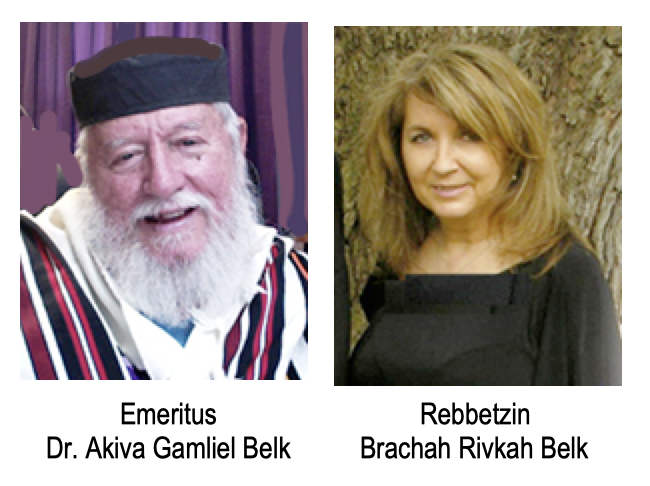23 – Mourning Sarah
בייה
Genesis 23 – Mourning Sarah
Dear family and friends, mourning is for us who feel the loss of a loved one. Mourning one’s loss is a Jewish / Noachide tradition dating back to (Genesis 7.4) where the Lord Said, ‘in another seven days I will cause it to rain upon the earth.’ That seven-day delay was to mourn Sit Sheva for Methuselah and give the sinful inhabitants more time to return to God. Rabbi Meir Zlotowitz and Rabbi Nosson Scherman, The Artscroll Tanach Series – Bereishis Vol. I (a) (Brooklyn, New York: Mesorah Publications, Ltd. 3rd Impression, 1989), p 244 – (Genesis 23.2) shares that Abraham came to mourn the death of Sarah, his beloved wife of over 100 years, and to weep for her. They were dedicated to each other throughout her 127 years, from birth to death. Sarah was righteous. Sarah was a prophetess. Our Sages teach that Sarah’s level of prophecy was greater than that of Avraham. Rabbi Yisrael Isser Zvi Herczeg, The Sapirstein Edition Rashi Bereisheit / Genesis (Brooklyn, New York: Mesorah Publications, Ltd. First Edition 10th impression 2007), p 222. If we review each marriage from creation until now, Abraham and Sarah would be at the top in Ha Torah. Why? Ha Torah repeats, ‘Sarai/Sarah Abraham’s wife’ seventeen times for a reason. What is that reason? Why is ‘Sarai/Sarah Abraham’s wife’ emphasized so emphatically?
The Seventeen Listings are referenced for studying and connecting with the emphatically charged feelings they share.
(Genesis 11.29) says, ‘the name of Abram’s wife was Sarai;.’
(Genesis 11.31) says, ‘And Terah took Abram his son, and Lot the son of Haran, his grandson, and Sarai his daughter-in-law, his son and Abram’s wife;
(Genesis 12.5) says, ‘Abram took Sarai his wife,’
(Genesis 12.11) says, ‘[Abram] said to Sarai, his wife.’
(Genesis 12.17) says, ‘the Lord Plagued Pharaoh and his house with great plagues because of Sarai Abram’s wife.’
(Genesis 16,1) says, ‘Sarai Abram’s wife bore him no children;.’
(Genesis 16.3) says, ‘Sarai Abram’s wife took Hagar her maid the Egyptian’
(Genesis 17.15) ‘And God Said to Abraham, As for Sarai, your wife.’
(Genesis 17.19) ‘God Said, Sarah, your wife shall bear you a son indeed, and you shall call his name Isaac;.’
(Genesis 18.9) says, ‘they said to [Abraham], Where is Sarah your wife?’
(Genesis 20.2) says, ‘Abraham said of Sarah, his wife, She is my sister; and Abimelech king of Gerar sent, and took Sarah.’
(Genesis 20.14), ‘Abimelech returned to [Abraham] Sarah, his wife.’
(Genesis 20.18) says, ‘the Lord Closed all the wombs of the house of Abimelech because of Sarah Abraham’s wife.‘
(Genesis 23.19) says, ‘Abraham buried Sarah his wife in the cave of the field of Machpelah before Mamre; the same is Hebron in the land of Canaan.’
(Genesis 24.36) says, ‘Sarah, my master’s wife bore a son to my master when she was old; and to him has he given all that he has.’
(Genesis 25.10) says, ‘The field which Abraham purchased from the Hittites; there was Abraham buried, and Sarah, his wife.‘
(Genesis 49.31) says, ‘There they buried Abraham and Sarah his wife; there they buried Isaac and Rebekah, his wife; and there I buried Leah.’
The Life of Sarah concludes with the last words of (Genesis 23.1) חַיֵּי שָׂרָה Chah-Yah – Saw-Raw meaning ‘The Life of Sarah.’ How did Sarah live? What can we learn from Sarah? She was a loving, kind, good, wholesome wife. Maharal comments that a wife has two missions in life. The three names, Iscah, Sarai, Sarah, define her life. (Genesis 10.27 – 28).
• The first name is hers from birth as an individual.
• The second name comes with marriage when she elevates to a higher mission if she marries a righteous person.
‘Sarah’s two names indicate her two missions; one mission is connected with her father, and the other mission is in connection with her husband. ‘Iscah’ is the name indicating personal greatness. It was Sarah’s for her own mission, and it is the one used in telling of her birth in Charan. ‘Sarah’ indicated that she joined Abraham in leading the world to its ultimate goal. Sarah was the name associated with the Abrahamitic mission from the time of her marriage.
She was called. – סָכָה Saw Chawh meaning, to look, to see, to observe, to prognosis, to prognosticate because she could ‘see; the future by holy inspirations. Rabbi Avrohom Davis / Rabbi Avrohom Kleinkaufman, The Metsudah Chumash / Rashi (Hoboken, NJ: KTAV Publishing House, Inc. 1993) p113.
(Bereishit Rabba 60.16) informs us that The Shekinah shaded the entrance to Sarah’s tent in the form of a cloud. As long as Sarah lived, the doors to her tent were wide open. There was a blessing on Sarah’s Challah, and the Sabbath lamp burned continually from the evening of the Sabbath until the evening of the following Sabbath. When Sarah died, each of these manifestations ceased, but when Rebekah came, they returned.
We see a vast hole left by that righteous wife. Nothing would be the same. Abraham began fading into the background as Isaac started to take charge. In part, we can identify why Abraham was so devastated. Sarah was such an influential part of Abraham’s life.
Here are three points we should keep in mind.
First, Sarah fulfilled her mission.
Second, Sarah was the ultimate helpmate.
Third, Sarah’s life taught women how to be God-Fearing Wives.
Remember that on The Second Day of Creating, The Lord God wrote everyone’s name in Sefer Chaim, The Book of life. When we speak of the life of Sarah, we begin with The Second Day of Creating, when her soul received identity. The same is true for Abraham and each individual born into our world. The Lord God Granted each person eternal life on The Second Day of creating.
(Isaiah 35.10) reminds us of our ultimate journey. ‘The Redeemed of The Lord shall return and come to Zion with songs and everlasting joy upon their heads; they shall obtain joy and gladness, and sorrow and sighing shall flee away.’
The Lord God Declared in (Isaiah 56.7), ‘Even them will I bring to My Holy Mountain, and make them joyful in My house of prayer; their burnt offerings and their sacrifices shall be accepted upon My altar; for My house shall be called a house of prayer for all peoples. Where is the House / Temple of the Lord God of Israel today?
The Lord does the Gathering. The Lord God will Bring ‘All Peoples.’ No race, gender, nation, or people will be excluded. ‘Even them will I bring!’ If you are, lost, The Lord God will find you. If hope seems lost, He will provide hope. (Psalms 30.12 – 13) says, ‘You have turned for me my mourning into dancing; You have loosed my sackcloth and girded me with gladness; To the end, my glory may sing praise to You and not be silent. O Lord my God, I will give thanks to You forever.’ We mourn our loss while at the same time we offer praise and adoration to the Lord God of Israel.
When a Jewish person dies we sit Shivah and we pray the Kaddish prayer. Shivah lasts for seven days as we mourn our loss. Kaddish is our mourning prayer where we pray for the soul of the deceased for 11 months. The Kaddish prayer is for the living. It states the value of life and that the Creator will take away all suffering and bring joy when Moshiach comes.
May each of us enjoy good health, happiness, healing, restoration, and Blessing, as we learn that we already have Eternal Life. May we be confident and trust in The Lord and Ha Torah. And may we work with our mates to complete the mission God has appointed for us.
Good Sabbath!
Blessings,
Dr. Akiva Gamliel Belk

